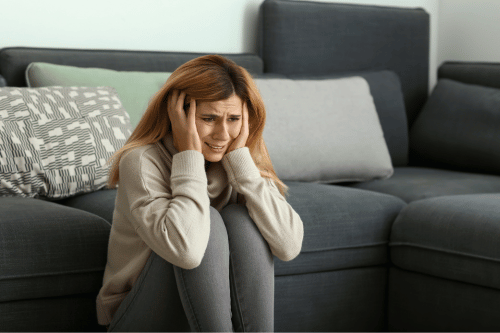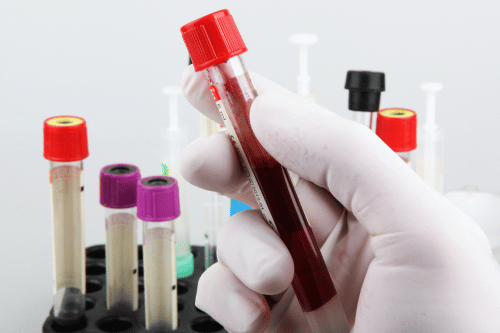Understanding Hormones and Anxiety
Tennessee Behavioral Health
What Is Hormonal Anxiety?
Hormonal anxiety refers to anxiety symptoms caused or intensified by hormone imbalances. This form of anxiety often appears during major hormonal shifts, such as during the menstrual cycle, pregnancy, or menopause. Hormonal anxiety can mimic generalized anxiety disorder but has distinct links to changes in hormone levels.
Hormonal Imbalance and Emotional Well-being
How Hormone Imbalances Impact Mood
Hormonal imbalances disrupt mood regulation in the brain. These imbalances can create emotional disturbances, physical symptoms, and persistent anxiety. Shifts in hormones often trigger vulnerability to anxiety and other mental health disorders.
Key Hormones Influencing Anxiety
Thyroid Hormones and Anxiety
The thyroid gland regulates metabolism and energy. Abnormal thyroid hormone levels—either too high or too low—can result in anxiety symptoms. These include nervousness, irritability, and physical symptoms like a racing heart.
Estrogen and Progesterone
Female sex hormones like estrogen and progesterone play a major role in mood regulation. Fluctuations during the menstrual cycle can increase anxiety risk, especially in the luteal phase. Women with hormonal imbalances may experience premenstrual syndrome or even premenstrual dysphoric disorder.
Cortisol and Chronic Stress
Cortisol, known as the stress hormone, spikes during periods of acute stress. Chronic stress raises cortisol levels over time, which contributes to mental health issues and physical health decline. High cortisol is linked to symptoms of anxiety and deficits in extinction recall—a mechanism studied in both clinical and rodent studies.
Insulin and Blood Sugar Stability
Insulin controls blood sugar, and imbalances can affect mental health. Sudden drops in blood sugar can lead to irritability and anxiety. Hormonal issues that affect insulin levels, like polycystic ovary syndrome (PCOS), may increase anxiety risk in women.
Life Stages and Hormonal Fluctuations
Menstrual Cycles and Premenstrual Anxiety
Hormonal anxiety is often highest during the premenstrual phase. This stage of the menstrual cycle phase is marked by a drop in estrogen and progesterone. Many women with anxiety notice worsened symptoms in the luteal phase due to hormonal cycle changes.
Pregnancy and Postpartum Changes
Pregnancy causes major hormonal fluctuations that affect emotional stability. Many women experience heightened anxiety symptoms during and after pregnancy. Postpartum depression and anxiety can arise from rapid drops in hormone levels.
Menopause and Declining Hormone Levels
During menopause, estrogen levels in women fall sharply. This hormonal shift can lead to mental health disorders, such as depression or anxiety disorder. Perimenopausal depression is often linked to sex hormone fluctuations.
Mechanisms of Hormonal Influence on Anxiety
Tennessee Behavioral Health
Brain Chemistry and Mood Disorders
Hormones influence neurotransmitters like serotonin, dopamine, and GABA. These systems control anxiety levels, mood regulation, and sleep. Disruptions in hormone levels can reduce the production of “happy hormones,” leading to anxious feelings.
Brain Function and Hormonal Impact
Sex hormone levels also affect brain plasticity and memory systems. Areas like the prefrontal cortex are sensitive to estrogen, which may explain sex differences in mental health conditions. Research by Goldstein JM and Mohammed Milad in Horm Behav and Nat Neurosci explores these effects on extinction recall.
Genetics and Anxiety Risk
Genetics can shape how hormones affect stress and anxiety. Some women may carry a higher risk of anxiety due to inherited traits and how their bodies process hormone changes. Animal studies and clinical trials show that female rodents and women with anxiety share common biological patterns.
Diagnosis of Hormonal Anxiety
How Hormonal Imbalances Are Found
Blood tests can reveal irregular hormone levels. These tests often check thyroid hormones, cortisol levels, insulin, estrogen, and progesterone. Identifying these imbalances helps explain common symptoms that mimic generalized anxiety disorder.
What Studies Show About Hormonal Anxiety
Rodent models help explain the hormonal mechanisms behind anxiety. These studies show hormonal shifts in female rodents can lead to higher anxiety-like behaviors. Research in Behav Brain Res and Clin Neurosci supports findings of hormone-related anxiety in humans.
Treatment and Management Strategies
Lifestyle Changes for Hormonal Stability
Healthy lifestyle habits help regulate hormone levels. Regular sleep, balanced nutrition, and reduced caffeine intake can lower anxiety levels. Managing stress and limiting alcohol also improve mental health and physical health.
Medications and Hormonal Therapies
Healthcare professionals may recommend hormone therapy or medications. Options include thyroid medication, hormonal birth control, or antidepressants. Birth control pills can help regulate menstrual cycles and mood disorders for some women.
Exercise and Hormonal Anxiety Relief
Physical activity boosts serotonin and helps stabilize hormone levels. Exercise lowers cortisol and improves symptoms of anxiety. Regular movement offers protective effects against both hormone-related and generalized anxiety disorders.
Challenges in Managing Hormonal Anxiety
Treating Both Body and Mind
A team of specialists may be needed to manage hormone imbalances and mental health issues. This can include endocrinologists, gynecologists, and mental health professionals. Coordinated care helps address all contributing factors to anxiety risk.
The Need for Custom Treatment
Each woman experiences hormonal fluctuations differently. Personalized treatment plans focus on the menstrual phases, hormone levels, and physical symptoms. Adjusting treatments based on the menstrual cycle phase effects can improve long-term quality of life.
Support from Tennessee Behavioral Health
At Tennessee Behavioral Health, we understand the strong link between hormone levels and anxiety. Women with anxiety may not realize their symptoms are tied to menstrual cycle phase effects or other hormonal issues. Our outpatient mental health programs help identify and manage hormonal anxiety with evidence-based care.
We offer personalized support for women experiencing anxiety related to hormonal fluctuations. Whether symptoms appear during the luteal phase, pregnancy, or menopause, our team can help. We work closely with each individual to understand how hormonal changes impact their anxiety levels.
If you’re struggling with persistent anxiety or mood disorders, our programs provide both emotional and medical support. Our licensed professionals consider hormone imbalances as part of your full mental health picture. We also collaborate with outside healthcare providers when hormonal treatment is needed.
Hormonal anxiety is real—and treatable. Contact Tennessee Behavioral Health to speak with a mental health professional who understands how hormonal cycles affect your mental health. We’re here to help you feel stable, supported, and in control of your emotional well-being.

Tennessee Behavioral Health
FAQ's
Yes, men can experience hormonal anxiety, especially due to testosterone imbalances or thyroid disorders, but it is more commonly studied in women.
Hormonal anxiety often peaks during the luteal phase and may last a few days before menstruation begins, then subsides in the follicular phase.
Yes, hormonal birth control can influence mood and anxiety levels by altering natural hormone cycles in some individuals.
A balanced diet can stabilize blood sugar and support hormone function, which may reduce anxiety symptoms linked to hormonal fluctuations.







